|
|
| Chinese
History |
Imperial
China - Qing |
|
Qing
(1644 – 1911)
The Qing Empire can readily be divided into two parts:
Early and Late, because after 1800 the influence of
Western Powers becomes ever more marked, and directly
associated with Chinese autonomy
In 1616 a new and powerful Jurchen tribe arose in Manchuria.
They defeated rival tribes and proclaimed a new Manchu
Kingdom, which in reference to the above map, included
the provinces of Jilin, Heilongjiang, and the now Russian
province of Primorsky Krai. They are sometimes referred
to as the Later Jin - yes, the same Jin that had plagued
Chinese Northern borders for a millennia!
They had designs on the rich resources China offered,
but bided their time as the ruling Ming Empire self-destructed.
In 1644 they entered China via a Great Wall gatehouse,
and were guided through by Chinese protesters. Heading
straight for Beijing, they met a similar reception at
the gates of the city, and the Great Qing Empire was
born
The Qing quickly assimilated themselves into Chinese
society, for after all, their ancestors had ruled this
region of China several times before. It took 17 years
for the Qing to take full control of China, and they
came to find controlling such as vast Empire was a daunting
task. In 1662 Emperor Kangxi came into power, and he
is the longest reigning of all Chinese rulers. The Qing
army was just strong enough to hold the major fortresses,
but needed the help of Ming troops to have real authority.
The four Southern provinces of Yunnan and Guangxi, Guangdong,
and Fujian were given to Ming military commanders. This
worked for a while, and allowed Kangxi to focus on other
parts of his Empire. However, these three regions became
largely autonomous, and openly revolted 1673, in what
is known as the Revolt of the Three Feudatories. Kangxi
easily extinguished the rebellion, leading the fighting
personally. He then turned his focus to Tibet, and later
Northeast Russia, again with great success. He exerted
control over the Mongols via marriage of his daughter,
making them vassals. Later he retook Taiwan from rebels
who had previously revolted and defeated the Dutch invaders.
The map above is a good representation of the Empire
under Kangxi
After the Kangxi Emperor's death in the winter of 1722,
his fourth son Prince Yong (雍親王) succeeded him as the
Yongzheng Emperor. Yongzheng remained a controversial
character because of rumours about him usurping the
throne, and he was involved in great political struggles
with his brothers. Yongzheng was a hardworking administrator
who ruled with an iron hand. His first big step towards
a stronger regime came when he brought the State Examination
System back to its original standards. In 1724, he cracked
down on illegal exchange rates of coins, which was being
manipulated by officials to fit their financial needs.
Those who were found in violation of new laws on finances
were removed from office, or in extreme cases, executed.
Emperor Qianlong
However, it his successor Qianlong (R. 1735–1796) that
most Chinese regard as being the most memorable of the
Qing Emperors, and during his reign China reached the
zenith of its power. He launched several ambitious cultural
projects, such as the compilation of Siku Quanshu, or
Complete Library in Four Branches of Literature. With
a total of over 3,400 books, 79,000 chapters, and 36,304
volumes, Siku Quanshu is the largest collection of books
in Chinese history as well as the largest series of
books ever edited by the feudal authority. Unfortunately
this was also accompanied by the growing use of literary
inquisition, with many who wrote the wrong things (To
the Emperors whim or mind of that day) being executed.
Qianlong had a long and prosperous reign. His success
was in part the result of the cumulative contributions
of his predecessors. With the strong financial base
created by the reforms of Kangxi and Yong Zheng, Qianlong
was able to finance a series of military campaigns which
saw the Chinese empire expand in all directions to reconquer
lands claimed by earlier dynasties, raising the empire
to its greatest extent. These campaigns included wars
against Burma, Annam (Vietnam), Taiwan, Turkestan, the
Zungars, and the Ghurka. His victories in the north
against Turkestan and the Zungars were truly significant,
bringing vast areas under Chinese control and destroying
the power of the northern nomads, a constant threat
to Chinese security. Although Qianlong sometimes claimed
to be, like his forebears, a military genius, the evidence
suggests that his ability lay in selecting and rewarding
men with true military talent.
This military power was equalled by the brilliance of
Chinese culture. Qianlong patronized poets and painters;
his palaces became a series of great buildings stuffed
with riches from all over the world, and resplendent
in gilt, precious gems, and metals. In 1793, the British
ambassador to the Chinese court, Lord McCartney - cited
in Wakeman's study The Fall of Imperial China - wrote:
(The buildings are). … furnished in the richest manner,
with pictures of the Emperor's hunting's and progresses;
with stupendous vases of jasper and agate; with the
finest porcelains and japan, and with every kind of
European toys and sing-songs; with spheres, orreries,
clocks and musical automatons of such exquisite workmanship,
and in such profusion, that our presents must shrink
from comparison.
Like the ideal Confucian monarch, Qianlong was a competent
if uninspired poet who wrote over his lifetime hundreds,
perhaps thousands of poems. He collected famous works
of art and curios, and his collection, originally housed
in the palace in Beijing, is now the heart of the collection
of the world's greatest storehouse of oriental art treasures,
The Palace Museum in Taipei, Taiwan.
Factfile:
One interesting piece of information we have discovered
is that at one point during the early years of his reign,
Qianlong made a secretive visit to the southern provinces.
His intention was to personally observe the local dignitaries
before committing troops or replacing officials, and
scrutinise trading practices - especially around Guangzhou
(Foshan / Nanhai). In order to successfully prevail
in this subterfuge, he needed to remain as an anonymous
visiting trader or low level dignitary. However, his
staff needed to honour him, especially at mealtimes
if he should be the one to pour drinks (Tea) for the
companions. They adopted the habit of tapping the index
and middle finger second joints flat onto the table
top, repeating this 4-times in sets of two beats (8
taps in all). In this way they secretively acknowledged
his supremacy as Emperor, whilst maintaining the secret.
Today in Canton - which we can consider to be Guangdong,
Hong Kong, and the Cantonese speaking world of southeastern
China; this practice still continues at every meal or
for every drink proffered. We are aware this is not
known outside of 'Canton'? although neighbouring provinces
such as Guangxi and Hunan do observe this custom, as
I observed personally in 2009.
From my personal observations, as practiced on a daily
basis, I can add that the tapping varies from city to
city, and with what is being served. Generally tea is
as above; but liquor takes many local forms on the theme.
From this you may also infer that Cantonese people hold
Qianlong of all the Qing Emperors in the highest esteem.
There is a lot more associated with this story of course,
but let this suffice to whet your appetite, whilst we
move on...
Qianlong's latter years
During the late years of Qianlong's reign, the Qing
government saw a return of rampant corruption. The official
Heshen was arguably one of the most corrupt in the entire
Qing Dynasty. He was eventually forced into committing
suicide by Qianlong's son, the Jiaqing Emperor (r. 1796–1820).
In 1796 open rebellion by the White Lotus Society against
the Qing government broke out. The White Lotus Rebellion
continued for eight years, until 1804, and marked a
turning point in the history of the Qing Dynasty.
Qianlong was a talented and strong emperor, and he had
inherited stable institutions, but the closing years
of his reign saw the final decline of imperial China.
China was soon to face a variety of challenges, from
within as rapid population growth began to overwhelm
traditional institutions, and from without, as the ambitious
Western powers led by Great Britain began to cast covetous
eyes on the wealth of the empire. During these gathering
crises, the throne, like the Qianlong emperor himself,
was isolated by custom and tradition, prevented by its
own past successes from perceiving the need for rapid
and revolutionary changes necessary to confront those
challenges. It might be said that the strengths of the
Qianlong emperor were his own: he was intelligent, diligent,
and conscientious. His faults, perhaps, were those of
the Confucian system. He lived and died the ideal Confucian
monarch, the last which imperial China would ever see
as it entered upon its final decline.
The
Decline of Qing
In trying to present a synopsis of Chinese history,
I am conscious of avoiding becoming embroiled with minuté.
Therefore my next task is to try and explain succinctly
the enormous historical impact the Colonial Western
Powers exerted on China from around 1800 onwards. These
are mainly: Britain, France, Spain, Germany, Russia,
Holland (Dutch), USA and Japan. These are the main players
who all wanted 'A piece of the action'. For some it
was trade, and when this was forbidden, they came and
took what they wanted. For others it was land, and still
others just wanted to rule China. This is augmented
by a succession of weak Chinese Emperors who wanted
China 'Closed' to all trade and outside forces; and
the role of the last effective Chinese ruler by proxy,
Empress Dowager Cixi. Let's try a list with some added
pertinent points:
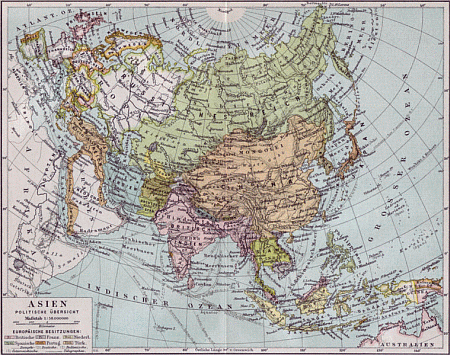
Qing Empire in 1890 - Click map to enlarge
Courtesy of Wikipedia
http://en.wikipedia.org/wiki/Qing_Dynasty
For a dynamically larger scale map please click here
The above map is quite revealing:
• Russia
has already chewed off bits of Northern China via treaties
of extortion - which Chinese still resent to this day.
• The Japanese invasion of Burma resulted in Britain
and China fighting as allies and eventually dividing
the spoils of war.
• Some of the countries
above are friendly powers, and I name Nepal (The Gurka's),
Siam, and Malaysia for special mention within the British
sphere. Spain controls The Philippines, whilst the Dutch
were ever present in the Southeast and Vietnam. Germany
looked to pick up any left-over's, whilst the French
just wanted to fill their museums and pockets - and
what they couldn't carry away they simply burned!
• Today as you wander around The Forbidden City,
and see a mass of maroon columns, remember that one
century ago these were covered with gold leaf. The French
privateers removed this for personal and private gain,
stole whatever they could carry, and set fire to all
that remained: which included precious tapestries and
manuscripts - I suggest you read 'Empress Orchid' by
Anchee Min for a different take of this period of history.
•
The British were no better, sacking both old and new
Summer Palaces, plus much of Guangdong that evaded the
Dutch.
So what was really going on?
The Opium wars were basically a British and Dutch subterfuge
to extract silver and trade from an Empire that was
'Closed' to foreigners. Opium was cheap and plentiful
to the Foreign Powers, and they used it deliberately
to destabilise the Qing Empire via Guangzhou. To cut
a long story short - Hong Kong was ceded to the British
on long-term lease; as was Macao to the Dutch.
Empress Dowager Cixi - The Dragon Lady
Many historians described Dowager Cixi as one of "the
most formidable women in modern history", who could
become a terrible enemy if she was antagonized. She
was described to be "power hungry, ruthless and
profoundly skilled in court politics". Most Chinese
dislike her a lot. However, she tried to control and
stop the Qing Empire from being divided and ruled by
various foreign powers. In this she was successful,
but at what a great cost!
In the first Japanese invasion of 1894, the Qing fleet
was destroyed and they were soundly beaten. However,
the Eight-Nation Alliance failed to capitalise on gains
they could have made.
The Boxer Rebellion of 1899 was initially targeted at
removing the Qing from power. However, Cixi was shrewd
and subtly converted this movement into one aiming to
remove foreign powers from China. In this she was generally
successful; but the cost in human life, especially amongst
Christian missionaries was horrific. Beijing was invaded
by the Eight-Nation Alliance, and Cixi + Royal Family
fled to Xi'an.
However, this proved to China's gain - and upon her
return, Cixi was able to pay-off the Eight-Nation Alliance
with silver, a lot of it! China was at last free of
the threat of the foreign powers. Cixi and her Emperor
son both died in 1908 (Some reports say they were both
shot by a General Yuan Shikai, a very powerful court
and family member).
The vacuum was filled by a two-year-old Emperor and
his Regent. Popular revolts became commonplace as the
last Chinese Empire folded. Both Nationalists and Communists
were involved, and in1912, China became a democratic
country inspired by Sun Yat Sen.
This now overlaps our history of modern China, which
is probably the most confusing period of all Chinese
history. If you really want to understand why the peoples
of modern China and Taiwan consider themselves to be
Brother's, then you better start - just after the fall
of the mighty Qing here
|
|
This information is as supplied by Wikipedia and Answers.com,
as dated March 2009 or later, and/or other reliable
sources. Some of the above text is sourced under Collective
Commons 3 Licence, as reproduced and/or edited by China
Expats:
References:
Wikipedia:
http://en.wikipedia.org/wiki/Qing_Dynasty
Answers.com: http://www.answers.com/topic/qianlong-emperor
Disclaimer:
Please check this information yourself as it may alter
without notice, and whilst we try our best to ensure
it is correct, please do not hold us responsible for
any errors - this is intended as a simple guide only |
|
| Search
this Website |
| |
| Our
Friends |
 |

Professional
Visa Services
Company
Formation Packages
. |
Hollywood
in China

Traveling Workshops:
Film Production, Acting, Makeup, Modeling, Dance/Yoga,
and Voice.
Sacred Rainbow Tour spectacular
China 2010 |

British Foreign Office
Advice for Travellers
Personal Email Updates |
Down
The Road.org
How
We Traded Our Ordinary Lives For a Global Bicycle Touring
Adventure

See
Us in China |
Excellent
& Free Online Chinese Language Portal

Thousands of free print-friendly Chinese reference sheets,
tests and revision aids.
Easy Learning format &
Listen to Spoken Words |

Chinese Embassy in UK
Information About China
International Relations
Visa & Consular |

UK Embassy in China
Information About UK
International Relations
Visa & Consular |

Based in Xi'an,
China's Premiere Travel Agency and International Travel
Community -
Committed to providing:
Best travel deals & current information for all
International Travellers |

Based in Shangri-la,
Yunnan Province
Dedicated to Exploring Remote Areas of China
Committed to Nature Conservation and Preserving Ethnic
Cultures & Traditions |
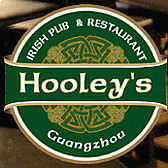 |

Empowering Underprivileged Children
& Their Communities = Worldwide
|

Excellent and relaxing base to
explore beautiful of regions in all China! |

Pearl
Dragon
Vast Online Trading and Information
Resource
Link goes to Chinese Tourism and Galleries Section |
| Film
Highlights |

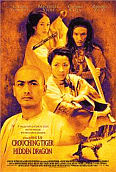
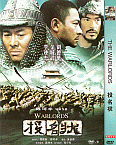
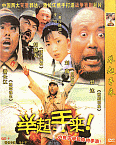
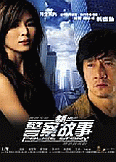
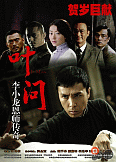
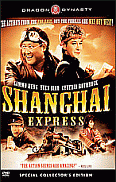



 |
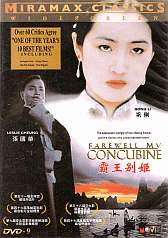 |
| A very intriguing film set against
the background of Chinese Opera. Regarded as a modern
classic, it follows the life of two young Opera stars,
focusing mainly on the one playing the female lead -
who becomes 'gay' through life-experiences, which is
taboo |
|